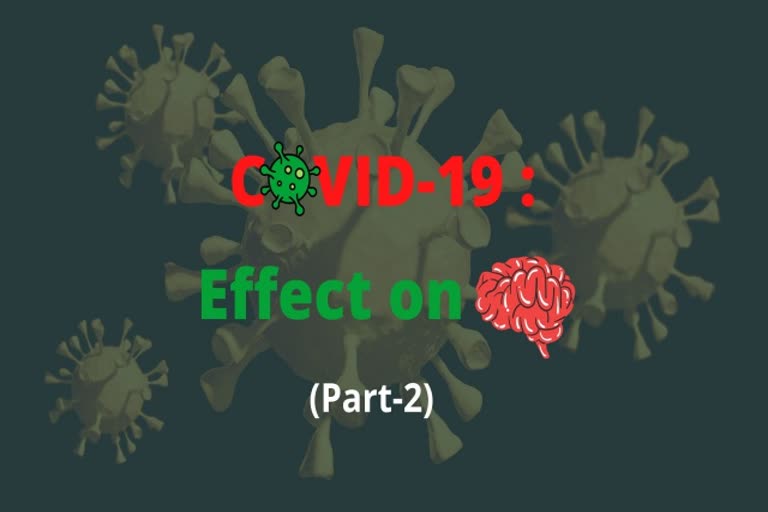Showing its diverse symptoms and aftermath, COVID-19 has been like a terror in the medical world. The novel coronavirus has shown various neuropsychiatric manifestations, in both the infected people and people who have already recovered from the infection. Cases of people suffering from encephalopathy, encephalitis, clotting of blood vessels and veins, etc. have been presented. People also suffered from strokes, even the ones who did not have any pre-existing associated conditions like diabetes, family history of strokes, blood pressure, etc. To understand more about the effects of COVID-19 on the brain, we talked to Dr Sreekanth Vemula, Consultant Neurologist at Apollo Hospitals and Magna Neurology, Hyderabad.
Dramatic Consequences Of COVID-19 On Brain
Even if the other neurological manifestations have not been as severe, psychiatric manifestations have been very prominent. The reason goes beyond the circumstances we are in like uncertainty, financial disturbances, etc. “Even if people do not experience any such serious conditions, they are experiencing headaches, typically like a migraine. It is worse in people with pre-existing headaches or migraine conditions. In migraine, one may have one-sided or both sided headache, very severe, throbbing pain, intolerance to light and sound, feeling of nausea, etc.. Changes very similar to these are occurring after COVID-19” says Dr Sreekanth. He further explains that some of the unusual things he noticed were that in some people, especially in children, there was a very sharp, brief, painful and intolerable headache. “I saw this in two kids, 13 and 14 years of age, who were simultaneously admitted with me. They experienced a brief and severe headache and suddenly it vanished. This is an uncommon pattern I have never found previously”. People also have associated mood disturbances, such as anxiety, depression, irritability or anger especially in children. What else he noticed was when he treated them for depression, the headaches also settled down. Also, people who had pre-existing psychiatric illnesses, they worsened post COVID-19 infection.
Our expert explains that there are some autoimmune phenomena, which means the body reacts to itself. Here, somehow, the nerves in the periphery of the brain are more susceptible than any other part of the body, which is why more people are experiencing post-COVID brain and nerve problems, than any other body system.
There are also demyelinating changes. Myelin is a sheet covering the nerves in the brain and in other parts of the nervous system. In some conditions, it tends to be lost, decreasing the power of the nerve and not letting them work properly. Therefore, the area in which the change occurs becomes less efficient. These demyelinating changes are also occurring post COVID-19. There are also changes like multiple sclerosis occurring but are not very common.
Apart from this, the peripheral nervous system is also involved. Peripheral nerves connect the brain and spinal cord to the entire body, which further helps in controlling the sensations, movements and coordination of the body parts. Many people have presented to have foot drop, a condition in which the foot suddenly becomes weak and forefoot drops. People have an inability in walking properly. They have to lift their leg off to a high distance and walk. It has to be treated with steroids and people recover quite efficiently. Some people may also experience muscle pains and twitching.
Parallels With The Past
In some of the pandemics and epidemics the world has seen before, links to nervous disorders were seen, however, some were not easy to prove. In the 20th century epidemic, sometime around 1916-1930 called Encephalitis Lethargica, where the nervous system was seen to be affected, and people suffer from Parkinson’s. Some previous influenza outbreaks have also been linked to encephalitis and sleeping sicknesses.
While the research is still ongoing regarding the link between COVID-19 and brain, the doctors are treating their patients according to the symptoms. While most patients are recovering, the situations have been seen to worsen as well. Therefore, although the curve is decreasing and people are going back to living normal lives, people should not forget that extreme care and precautions are still to be taken by everyone. While people who have not been infected by the novel coronavirus need to be cautious, the ones who have recovered from the disease need to be extra cautious. Consult a doctor immediately if you experience symptoms like headaches, throbbing pain, nausea, severe fatigue, etc. post-recovery.



